#MENTORING
Text
Takeaways from my mentor
I meet with my mentor as and when he’s available. He manages my family’s money and he’s very good at what he does - his firm manages about $5 billion, and I have great conversations with him.
I don’t want to talk too much about him, but he came from a lower middle class background and today is wealthy beyond comprehension. He could buy a plane or two in the middle of the night if he wanted.
Today we focused a lot of personal growth in my career.
He gave me two books - The Inheritors by Sonu Bhasin and Fortune’s Children by Arthur Vanderbilt.
Here are some brief takeaways:
Work backwards from the outcome you want.
Define the outcome of where you want to be and plan it backwards to your current position.
2. Eliminate, eliminate, eliminate.
Life is all about elimination. Don’t focus on your weaknesses, focus on your strengths. Eliminate all the things you know you’re not good at, you have no interest in and that make you depressed.
3. Intellectual honesty.
Be honest with yourself about things you are good at and are not. The easiest person to fool is yourself.
4. Read one business biography a week.
Everything you’re going in life, there’s a 99% chance someone else has gone through it and come out of it victorious. He also mentioned this article.
5. Outline 3 strengths and 3 weaknesses.
6. (In business/ corporate careers) You’re either primarily an investor (you’d rather fund companies and start ups than start them), an operator (you’d rather build something hands on), or a manager (you’d rather periodically manage something hands off. Like for instance you could have your own franchise bakery chain where you don’t need to exercise minute control over every franchise but you still ensure that there’s some managing done from your part).
7. Do not have extreme ideologies at this age.
Not when it comes to religion, politics, etc.
8. Emotions, money and your time are something you need to be ruthless about. Absolutely ruthless.
Be careful about the friends you have and the influence they have on you.
#ceo aesthetic#that girl#personal growth#strong women#powerful woman#balance#getting your life together#c suite#q/a#productivity#Business#Mentor#mentoring#takeaways#business advice#Corporate#success
1K notes
·
View notes
Text
Someone has probably already pointed this out but mentoring is hell. When Snow and all the other kids get assigned to being a mentor for the games they all end up falling for their tribute in a way. Or at least most of them do. They develop soft spots for them. Snow falls for Lucy Gray. Lysistrata fell for Jessup. Even Juno shows remorse over Bobbins death. Nearly all these capitol born children find out when mentoring that the kids they watch die are actually people.
At nearly every turn in the ballad of songbirds and snakes you see all capitol born citizens get personally involved with them. And when they inevitably lose them they all become different. It changes who they were. Each of them gets a little more convinced that their kid isn't district. Snow even pushes the idea that Lucy Gray is practically capitol. Within the mentoring they all view their tribute as the exception. The one that doesn't belong to a district. Their tribute is always better or smarter or kinder than the rest. A few of them even get saved by their tribute. The tribute didn't have to do it but they did. So to them they can't possibly be from a district.
Making the victors mentor the children from their own district is fucked in a lot of ways. Every year they are forced to get close to another kid, knowing their families back home are depending on them to do their best to bring them back. They try their damnedest to save them but the odds aren't always in their favor. It takes away the opportunity for their capitol citizens to humanize them while making them isolated on all sides. They don't want the capitol citizens getting too close because if they do then they'll realize these are people. They allow the winners to go home while being the richest in the district. In twelve, we see that everyone is starving while Haymitch is fine. This helps isolate the victors even more.
Who would want to look at their winner when people are dying and they are doing perfectly fine? Who would want to look at the person that didn't bring your child home? They may know the capitol is to blame but the mentor always shares that responsibility in their mind.
It's part of the punishment for the victors too. It's not enough to force them into prostitution and sex slavery. You need more than bodily control over them to keep them broken and beaten down.
The capitol does such a good job at isolating and punishing victors. You're forced to mentor a child every year that you may or may not know. Half of them are already dying or too weak to fight back and yet you are their only chance of survival. You have to be willing to forgive your fellow mentors for the actions of their tributes because they are the only ones who will ever truly know the hell of losing everything. They are the ones that understand the hate from all sides. The victors are hated by the president, their own districts (outside of the career districts but they have their own fucked problems) and by the kids they have to shepard to death.
Snow's games is designed to make them view the other districts as the enemy and for the most part it works. They want the victors to hate each other but by having control over everything else all they are left with is each other. Even if they wanted to hate each other there would be no point. They have no one else. Their games change them. No one back home is able to pick up their pieces.
In bosbas he reflects that all the capitol mentors now are bonded. It's a club with an unbreakable connection. I think he saw how dangerous it was to let their citizens be too close and just how painful it was to do that job. Imagine being one of the few like Haymitch that had 20+ years of failure to haunt them with a district full of children blaming them for the losses.
#everlark#hunger games#thg#ballad of songbirds and snakes#bosbas#coriolanus snow#president snow#haymitch abernathy#enobaria#brutus#johanna mason#finnick odair#lucy gray baird#district twelve#gloss#cashmere#wiress#beetee#chaff#mentoring#panem#katniss everdeen#peeta mallark
773 notes
·
View notes
Text
Title: Mentor Tim
So we all know how similar Tim is to Bruce, I feel like as Tim gets older he promises himself not to become like him, in regards to his closed off-ness and anti-social behavior, gets therapy (boy was that something else), matures as a person and learns to take care of himself properly (not everyone has an Alfred lying around y’know).
So older Tim, who does not want to be Batman (who does at this point?), and considers Red Tornado (Aka; the only adult who really cared) his idol, makes an intellectual decision.
To mentor 10+ young vigilantes, that are basically neglected or ignored by their mentors, that he met once on a mission, apparently they’re the new Young Justice members (why do all the unwanted ones end up there, seriously, has everyone learned nothing??).
It’s not that he planned to mentor the young superheroes, but he couldn’t really ignore them when they took to him like little ducklings to water all because he was nice to them.
The were very undertrained and uncoordinated, and in desperate need of guidance, and Tim who has caused or been apart of some of the craziest shit known to man has a lot of knowledge to spare:
Tim: Leo, for the love of god. Put. That. Down. Number one rule of dealing with magical artifacts or magic in general is don’t touch it and run, don’t walk away if it starts to glow.
—————————
Tim: Keith, seriously dude, if you need any new equipment, swords, knives, anything at all, just tell me. Y’know what I can set it up with one phone call, hold on.
—————————
Tim: Peter, if that jerk at school talks to you like that again I give you my permission to beat his ass, I don’t care what your school or “mentor” have to say, they clearly know nothing about teenagers.
—————————
Tim: Of course you can skip training next week for your recital Sofia, and actually, I cancelled training for everyone when they told me they all wanted to go to support you, thanks for inviting me by the way, I can’t wait.
—————————
Tim: Oh, you’ve had an argument with your parent, Nick? Hold on just a sec.
Tim: Yeah, I just freed my schedule so we could have the whole day to ourselves, I remember those movies you told me you wanted to marathon, let’s go watch them in the big screen room, bundle ourselves in the softest blankets and eat a sh- heck ton of ice cream, while we talk about it, if you feel like it, of course.
—————————
Tim: I noticed how much extensive energy you have even after a full training session, Mateo, so I thought you and I could stay and spar, even after everyone’s done. I’ve brought new training equipment for you to try and researched a few new techniques that correlate with your abilities.
—————————
Tim: Don’t worry about not being able to speak, Amara, I know plenty of sign, in many languages, in fact.
—————————
Tim: *on a phone call*
Tim: What do you mean you’re in a burning building?
Tim: What do you mean you set it on fire?!
Tim: Send me your location, Amber, I’ll be there in ten, no- five.
—————————
And that’s how the hero community noticed how the newly proclaimed Young Justice mentor Red Robin nowadays often had one, if not all, of his ducklings kids students standing proudly next to him.
Bonus:
Tim: Red, I am so sorry for all the years you had to put up with my bullshit.
Tim: I’m basically the only adult- no, person, who cares about them!
Tim: I don’t know how they’ve been alive for so long!
Red Tornado: You are forgiven, Tim, although I must admit, it is quite satisfying that you know of my pain.
Tim, with haunted eyes: You have no idea.
Part 2??
282 notes
·
View notes
Text
It's been a long year and it's only February…
Well, it's time to put this out there: I've had a fairly shitty few years (like, haven't we all, obviously), but it's included a long, expensive legal battle against unscrupulous cysts, which is finally concluded satisfactorily save being left somewhat skint on the other side of it. Doesn’t help that said battle meant that I had to move house - not exactly a low activity on the expense and stress scales…
So I'm looking for extra work, to help while we wait for the Luxury Space Communism to kick in (I'd settle for Universal Basic Income or an end to the Housing and Cost of Living Crisis, tbh).
Things I do to a professional standard include:
Creative Mentoring and Tutoring (writing and performance techniques, especially for poetry - bespoke or standard workshops available for groups as well as one-to-one).
Project Management (feeling overwhelmed by a project you want to get off the ground and/ or run within budget and timescale? I can help with that).
Business Change Management (you need to expand or shift your business focus? I can help that happen in a well-managed fashion).
Performance Poetry (got a bunch of poems, 18 years' experience delivering them live, and a nice voice).
Writing to Commission (especially poetry, but I write both fictive prose and essays too).
Voice Acting and Narration (I've acted in audio dramas and narrated short stories, training videos, and so far one documentary).
Book and Pamphlet Production (I operate a small press).
Basic website setup and maintenance.
Training on any of the above.
I have a sliding scale of rates depending on customer circumstances, and you can book me for a free initial consultation via my website: https://www.fayroberts.co.uk/crass-commercialism/services/
And if you fancy just sending me money because you're generous, I have a ko-fi: https://ko-fi.com/fayroberts
#fay speaks#personal plea#please share#professional services#project management#business change management#poetry#creative writing#training#tutoring#mentoring#voice acting#freelance#looking for work#ko-fi#commissions open
61 notes
·
View notes
Text
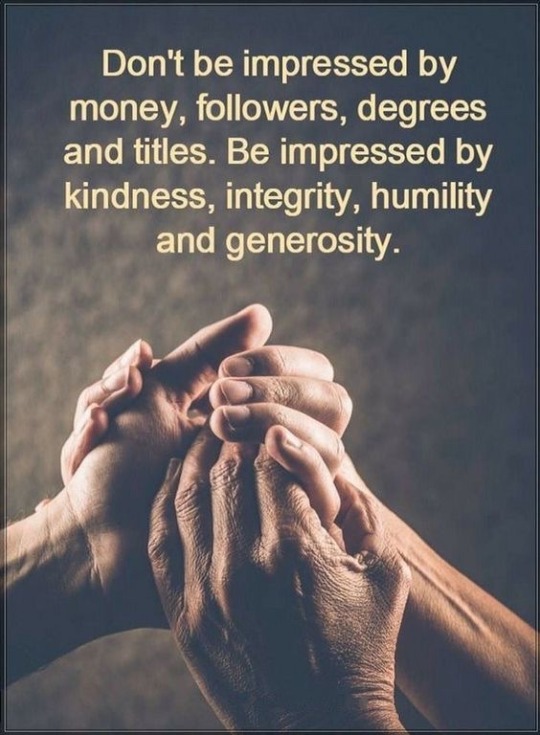
#mentoring#positivity#motivatedmindset#focus#encouragesomeone#humanity#think more#self reflection#inspiration#kindness#motivation#innerstrength#believeinyourself#civility#common humanity
122 notes
·
View notes
Text
Roy & Keeley as mentors
Keeley is mentoring Shandy, similar to her but not exactly.
Roy is now mentoring Jamie, similar to him but not exactly.
When Roy & Keeley teamed up to help Phoebe on Christmas, they balanced each other out. Keeley's sensitiveness got Phoebe to open up, Roy went straight into action to fix the problem.
Keeley convinced Roy that it was better not to beat up a kid, Roy convinced Keeley that maybe a bully should know it's not acceptable even if Phoebe's problem was solved.
Wouldn't it be fun if they both had challenges mentoring and ended up getting advice from each other to help make Jamie & Shandy better? Because Shandy may need more tough love than Keeley is used to giving and Jamie may need a gentler touch than Roy's ready to offer.
Just a thought...


#roy kent#keeley jones#shandy fine#jamie tartt#roy and jamie#keeley and shandy#mentoring#better together#ted lasoo#ted lasso theory#ted lasso s3
81 notes
·
View notes
Text








After Class Studies
#hogwarts legacy#hogwarts#photoshoot#harry potter#willow tree mc#aesop sharp#daddy sharp#professor sharp#wizarding world#couples shoot#studying#tutoring#after hours#after class#mentoring#appreciation post
15 notes
·
View notes
Text


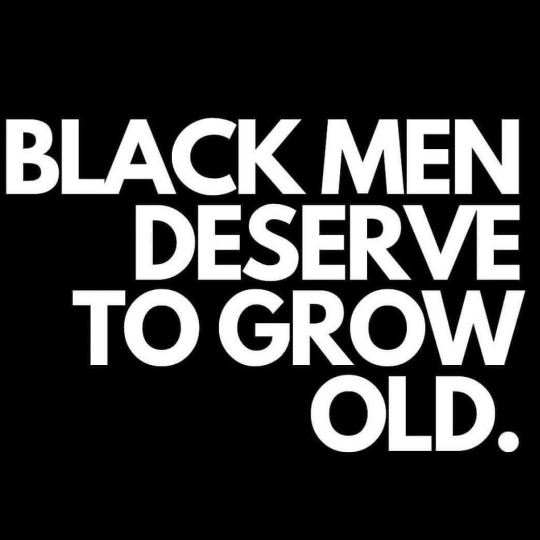
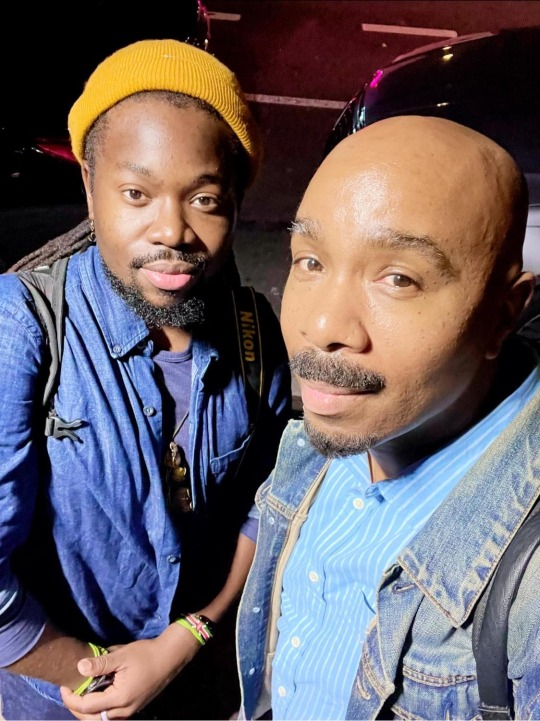





At 55 years old I’ve been a mentor to young people for at least 30 years.
At first it was by chance then by choice.
Young people of all ages would like my company and sass ! These two young men I’ve known for over 10 years. My children are of all hues and sexual orientations.
It’s important that gay youth feel safe and comfortable when seeking affirmation, wisdom and love.
When i was initiated my Iya told me that I have a gift and calling to help young people. To this day Yemaya and my “mother” Oshun continue to bring me young people . Some see me as dad, others call me mom, and i even get the distinction of abuela/ abuelo 😆. They know when I hug them it is spiritual and not sexual.
#african descent#african diaspora#black and gay#same gender loving#afro latino#black people#lgbt#lgbt poc#mentoring#black gay men#blatino#oshun#yemaya
69 notes
·
View notes
Text

DAILY MEDITATIONS AND AFFIRMATIONS - May 15, 2024
"The third time he said to him, ,,, “Do you love me?” ,,, Jesus said, “Feed my sheep. - John 21:17
You have to be the nourishment for other people's souls until they learn to feed on God. Until others learn to draw on the life of the Lord Jesus directly, they will have to draw on His life through you. You must literally be their source of supply until they learn to take their nourishment from God. We owe it to God to become the best for His lambs and sheep, as well as for Him.
God is here with his divine purpose to change our weakness into mighty strength and fruit-bearing that remains for His Kingdom. A person who has the love of Jesus flowing through his heart into the lives of others may soar, run, and rejoice; he is free and nothing holds him back.
"See that you walk circumspectly, not as fools, but as wise, redeeming the time, because the days are evil. Wherefore be not unwise, but understand what the will of God is." - Ephesians 5:15-17
You know there are things you are doing now that are temporary. You are doing them only until you find the thing God wants you to do, the real work you were meant to do. When the fire reaches your core, you will trash all the vestiges of ineffectual, powerless living.
AFFIRMATIONS:
I know that God's Word is the truth - and the truth that I understand will make me free! (John 8:32)
I can do all things through Christ who strengthens me! (Philippians 4:13)
The Lord is my rock. He is solid and does not change. He is my Fortress, surrounding me with protection. He is my Deliverer, always making a way for me. My God, my refuge! (Psalm 18:2)
ALBERT FINCH MINISTRY
2 notes
·
View notes
Text
ok this friday workshop is going to be a small-ish group (8-10 people), most of whom i already know and like, so i really don't need to stress that much about it. i also need to remember that no workshop is perfect and the ideal is just, like, somebody presenting reasonably engaging content that gives you a couple good ideas you can adapt to your own practice. i think i just feel a lot more stressed when i am presenting for faculty vs. presenting for students, bc idk i have a long track record of engaging students successfully so i know i can do it but i've done less of this work with faculty and i feel more worried about being Judged. but as liz always says security in ourselves is the gift we give everyone else around us and i don't need to think of this as like,
ok so in my last talk-through of this workshop i walked through the framing and identified some of the common frustrations that arise in mentoring students, especially in the middle of a mentoring relationship. now i want to identify 4-5 specific strategies, tactics, or structures people can use/adapt to turn these frustrations into teachable moments where students
(1) micro-meetings. i think we often schedule meetings with students that are 1) too long (like an hour or more), 2) too infrequent (once every two weeks or once a month), and 3) require too much prep work on our end. as a result we end up with long gaps between meetings where we're not checking in with kids (which means more opportunity for them to get derailed or slip through the cracks)... and then when we do meet there's pressure on both sides to get through a ton of content and to share a lot of feedback (which can be overwhelming for the student, esp if they are not yet experienced in taking in & implementing feedback). as mentors or advisors these meetings can be individually energizing (it's great to spend time connecting with kids!) but the cumulative effect of holding so many long meetings, which often require us to read or go over a lot of material in advance, can be exhausting, esp if we are mentoring lots of student projects at once.
i think it is much more effective to hold shorter but more frequent meetings with students (20 min once a week or 10-15 min twice a week); to keep these meetings laser-focused on troubleshooting project progress or implementing 1-2 pieces of concrete feedback; and to set the expectation that students do most of the advance work to prepare for these meetings. the idea is that we increase our touchpoints with students (so that we can quickly address challenges that arise or proactively anticipate issues we see coming) while also training them to do more of the work of evaluating their progress, diagnosing problems, and proposing solutions.
one possible structure for these micro-meetings might be: 5 min of catching up and talking about how things are going in the student's life; 5 min of checking in on progress towards goals set in the last meeting; 5 min of troubleshooting issues or answering questions that have come up between meetings; and 5 min of establishing priorities and setting concrete, measurable goals or action items for the next phase of work (typically one action item from the advisor and two action items from the student, but this can vary). we make it clear to students that we expect them to come to the meeting having already reviewed last week's goals, assessed their own progress towards those goals, identified challenge areas, and given at least some initial thought to where they want to go next.
of course it's not fair to expect students to know how to do this preparation without any practice! so in the first few meetings (and some of the initial classes or group meetings), you might devote a significant amount of time to talking through this meeting structure, perhaps teaching students how to use their project journals to identify problem areas or goals or create agendas for these meetings, and having students practice prepping for their next meeting in partners or small groups. you will also probably spend the first month or so of these micro-meetings giving feedback on the goals students articulate or on their project journal notes and asking questions to help them refine their understanding of what a feasible goal is... like for instance if a student's project goal for the week is really vague, you might work with them to define more specific priorities or articulate a more measurable outcome so that together you can evaluate whether they achieved their goal or not.
one purpose of the micro-meeting is, as i said, to increase our touchpoints with students so we're more aware of their progress and can intervene if we see they're getting stuck or lost (so, less time spent feeling adrift or demoralized). but the other maybe more important purpose is to teach students to be more autonomous and self-directed in their work. if used effectively, with appropriate scaffolding, i really think these types of meetings can hone students' abilities to assess their own progress, proactively identify problem areas, and independently decide what next steps need to be taken... so they aren't just sitting around waiting for us to tell them what to do next. having a really clear, repeatable structure also helps minimize the work we have to do to prepare for these meetings. we can of course bring our own feedback/advice into these meetings based on what we're seeing happen in the project, but in general we are setting the expectation that the student has ownership over the project (or their assigned part of the project), has the most detailed knowledge of how things are going, and has the capacity/ability to look at the project and think critically about where they need to go next. another way of framing that is: we no longer position ourselves as the all-knowing expert the student must rely upon to hand down direction. instead, we play more of a "coach on the side" role where we are acting as thought-partners or consultants for the student, who retains ultimate ownership over the project and responsibility for determining what needs to be done next.
(2) project/process journals. in my opinion, nothing helps students consolidate their understanding more than consistently recording progress made and reflecting on the whys of their own process. to me, project journals go hand-in-hand with micro-meetings, since the project journal is often where students engage in the reflection they need to successfully prepare for a micro-meeting with their mentor. project journals can be a big requirement for the course/program or a smaller requirement depending on how much time you want students to spend on them. you can also decide how structured they are vs. how free-form.
[note for myself: i gotta think about how much detail i want to provide here... i could show them some examples or could just list a range of questions/prompts they could choose from in designing their own project journals. i might also show them a couple student examples? because in my experience students get quite into the project journals and end up writing a lot more than is required of them... like i think they find them genuinely useful and often end up adapting them to their purposes.
i also want to mention that you can do these journals as a group thing, too! in one class my students were working in stable groups of 4 and i had them maintain a shared google doc where they recorded their progress for the week, posed questions, set goals for themselves, etc. this created some level of public accountability around the goals and also allowed students insight into how their peers were thinking through common challenges arising in the work. it also gave them the opportunity to comment on each other's project reflections to offer advice or provide resources or make connections the first student might not have seen. in that class, the shared google docs ended up becoming a great community-building tool too... kids would post funny memes, vent about project frustrations, leave encouraging comments on each other's work, etc etc and it just became this fun asynchronous way for them to connect with and support each other instead of funneling all of their project work and feelings through me.]
(3) the talk-through. this is less of like, a concrete tool or structure and more of a strategy i use to slow the leap to solving the student's problem for them. it is way easier and faster for us as mentors to step in and fix things when we see a student floundering or when we notice their project is kinda going off the rails! but it is way more valuable (and in the long term, way more sustainable) for us to sloooooooooooow down and instead create space for the student to think through what's going wrong and to critically evaluate possible pathways forward. so often when a student says "help! i'm having this problem what do i do!" i will ask them to start by talking me through the problem in detail, narrating how they perceive the problem, when they first noticed it, how/why it is hindering their progress, and what possible solutions or directions they're thinking about exploring in response to the problem. during the talk-through, i'll offer zero advice but instead will ask lots of questions, trying to really draw out their hunches about what's gone wrong and their instincts for what they might do to resolve it. very, VERY often the student will end up solving the problem themselves... and may even come up with ideas, explanations, and solutions i wouldn't have thought of myself, because they have a different perspective than i do or because i'm not as immersed in the work as they are.
i find the talk-through valuable for so many reasons, but mostly because if you repeatedly use this strategy over time, i think it really builds up the student's confidence in their own ability to critically examine, diagnose, and generate solutions when they run into obstacles. it also, once again, helps reaffirm their sense of ownership over the project... this is their work and their area of (developing) expertise, and i am here not to swoop in and fix their problems for them but to help them marshal what they already know and organize it in a way that enables them to see a way forward. plus the talk-through has pedagogical value for me too! i've found that consistently practicing this strategy with students helps me better understand where we might need to do more scaffolded skill-building work as a class or group. if a bunch of students are running into the same problems, it may mean that they don't quite have the skills or content knowledge they need to successfully grapple with those problems yet... and so that can be something i intentionally build into instruction in next week's seminar, or develop a workshop around, or whatever. the talk-through helps me gather more information about how students are experiencing the program or learning experience, which in turn helps me tailor instruction to their specific needs. [note to self: when presenting this one, maybe i can provide a list of open-ended questions you can ask to probe students' understanding or to prompt a deeper talk-through, so it feels a bit more concrete.]
OKAY PHEW. taking a break now and then i'll come back and do two more!!! i think i will do accountability structures and peer-to-peer advising/coaching.
3 notes
·
View notes
Text
Is Their Universe Expanding?
An excerpt from my book "Teaching in the Spirit"
If you cling to something as an absolute truth and are
caught in it, when truth comes and knocks on the
door, you will refuse to let him in.
—Buddha
When we’re very small, life is uncomplicated and predictable. It’s an
intimate world which tends to revolve around parents, significant
others and the rituals of sleeping and eating. For the most part, the
bigger picture isn’t of much concern. Living is pretty egocentric, focused on getting needs met, and there is usually hell to pay if they
are not. Naturally, if children are around a large circle of family and
friends, their world will start to expand somewhat and they might
become socially savvy at an earlier age.
As children reach school age, we’re careful to instill and reinforce
the virtues of sharing and caring for others. Their universe is growing a few steps at a time.
Yet we have to ask a very profound question about our education
system, and answer it honestly. Are we continuing to aid in this process of enlarging young people’s outlooks? Or are we merely filling their minds without dated ideas, narrow minded opinions and the latest technology, which will become just another part of the mind-numbing background noise which plagues them throughout their lives? With this constant input of information and stimuli, there is almost no space to take refuge and when the mind is in turmoil,
there isn’t much room for spacious, imaginative living.
As young people are taken into our trust, we often sell them what
is safe and familiar. Is this truly what you would want for yourself if
you were starting out in life? Think about yourself and those around
you. Are their minds liberated, or are they mostly caught up in the
drama of their personal narrow existences? How much of what we
do is joyous and spontaneous, and what is merely automatic response based on past actions?
If the human race is going to start waking up and experiencing
all that life has to offer, we need to begin with our children. It’s time
to take stock of what we are giving our kids and acknowledge much
of it is an old tired paradigm, one which doesn’t foster openness and
creativity.
We’re all so much more than our thinking and senses perceive.
Every awakened being throughout history has urged us to come to
this realization. But the sad fact is, we have little chance of even
scratching the surface of our unlimited possibilities when we’re
caught up in a jumble of fears, illusions and behavioral loops.,
23 notes
·
View notes
Text
Support and mentoring is my passion!
Right now flying to Prague to attend the PhD defense of my mentee. I decided to make the effort and support her personally on the spot.
Seeing that I help someone to overcome their struggles, achieve some of their dreams, and be more content with themselves is the most beautiful feeling.

#science#mentoring#mentee#women in science#support#mutual support#great feeling#teaching#girls supporting girls#original content
3 notes
·
View notes
Text
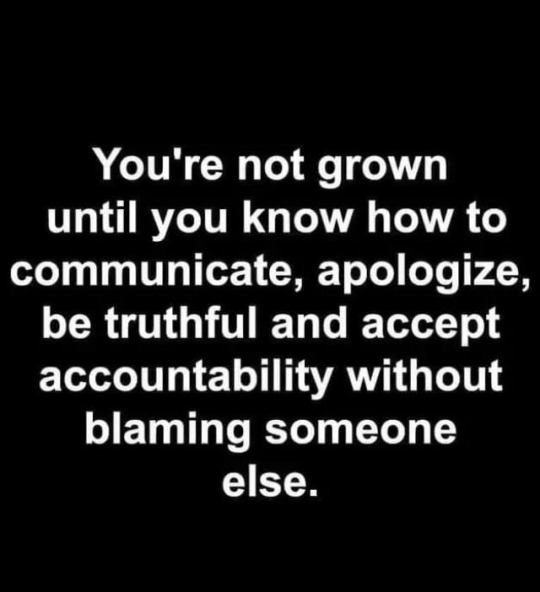
#mentoring#positivity#motivatedmindset#encouragesomeone#focus#self reflection#humanity#think more#inspiration#pedagogy#reaching out#why we can’t lift up each other#self concept#self esteem
15 notes
·
View notes
Text
DDigitalTree is a consulting service that specializes in helping business owners and professionals with their digital marketing needs. Their team of experts is dedicated to helping clients develop effective strategies to increase their online presence and drive traffic to their websites. They offer a variety of services including website design and development, search engine optimization (SEO), social media management, email marketing, and more. With their personalized approach and commitment to excellence, DDigitalTree is the perfect partner for any business looking to grow and succeed in the digital age.
#digitalmarketingconsulting#onlinemarketingconsulting#digitalmarketingconsultingservices#digtalmarketingconsultant#digialmarketingmentoringservices#onlinemarketingmentoringservices#consulting#mentoring
2 notes
·
View notes
Note
hi i love your blog! do you any mentoring 1:1 sessions or take clients ?
Hi! I’m not qualified to do that. I’m happy to give relatively “simple” advice if you drop a message in my DMs/ shoot me a message and I’ll answer it “publicly” like I do in my q/a.
8 notes
·
View notes
Text
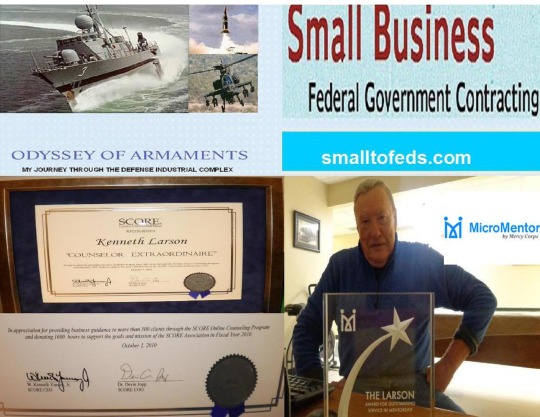
SMALL BUSINESS MENTORING AND SOCIAL NETWORKING - A Mentor’s 17 -Year Comparative Review of The SCORE And MicroMentor Web Sites
https://rosecoveredglasses.wordpress.com/2023/12/04/small-business-mentoring-and-social-networking/
2 notes
·
View notes